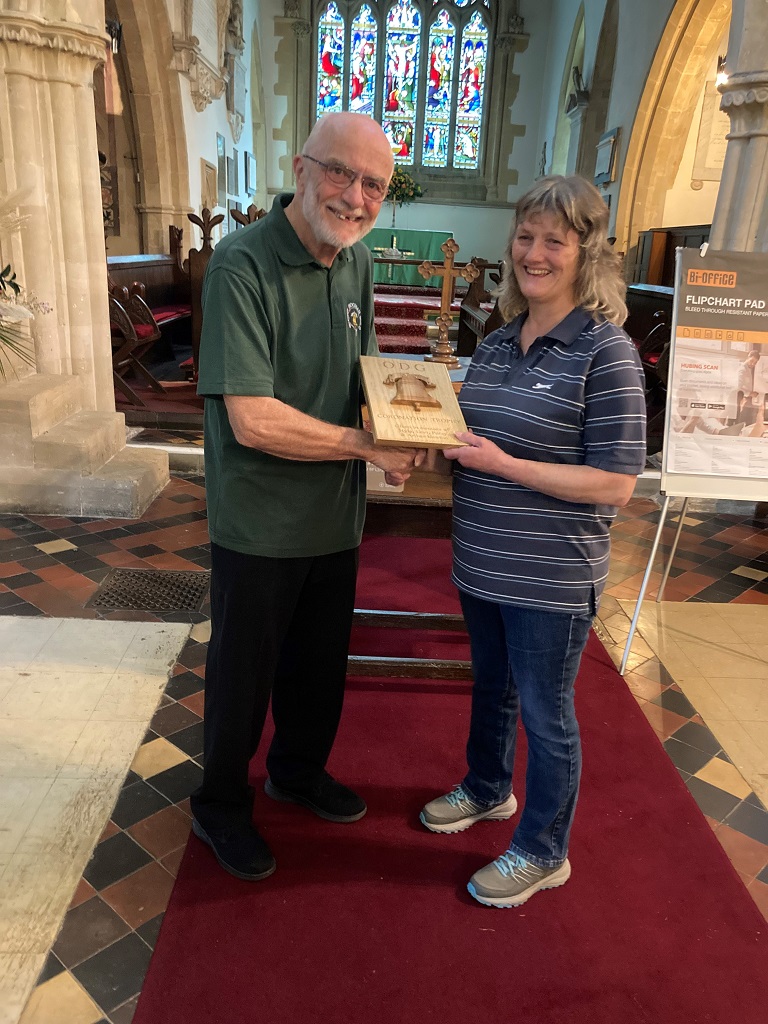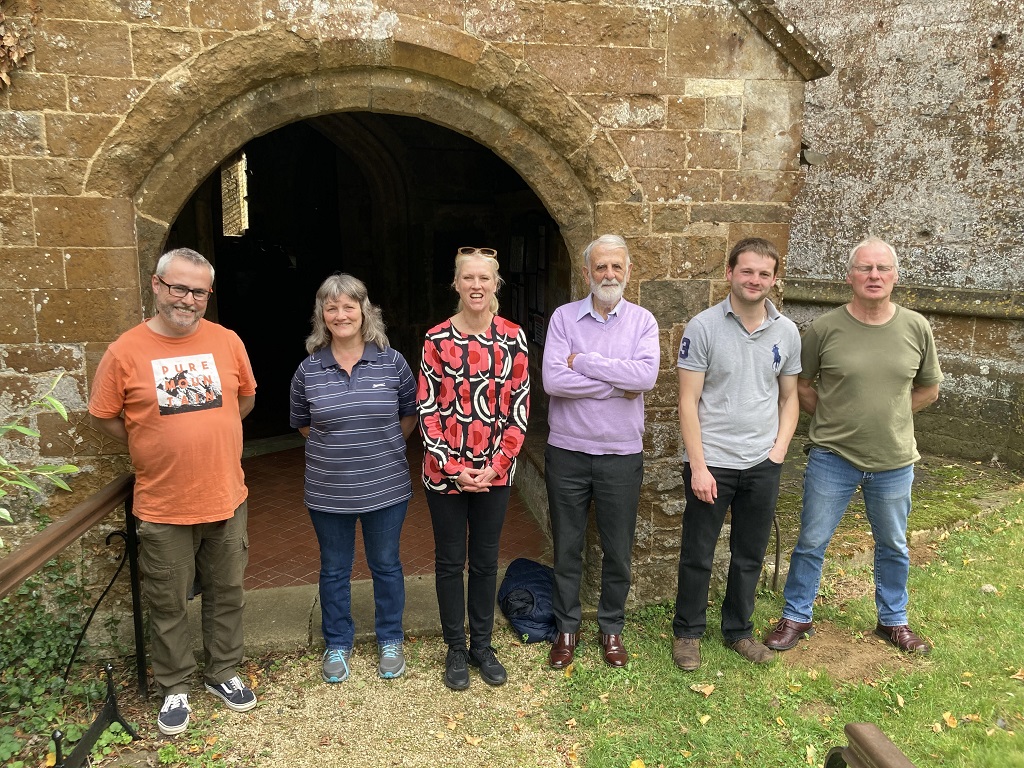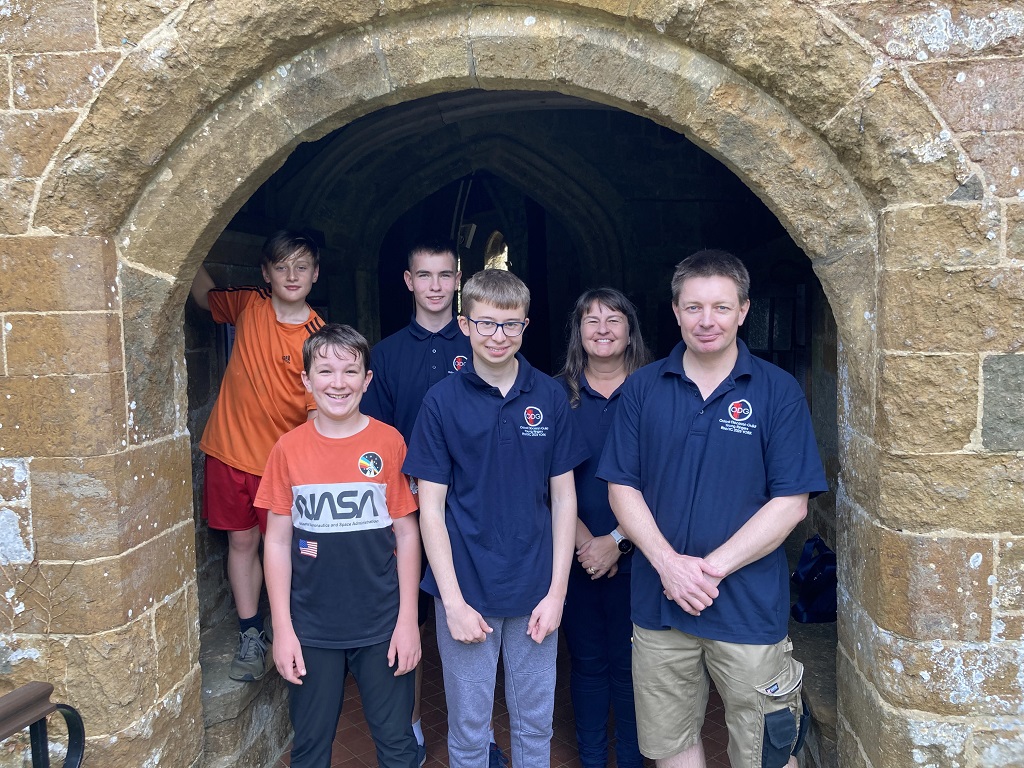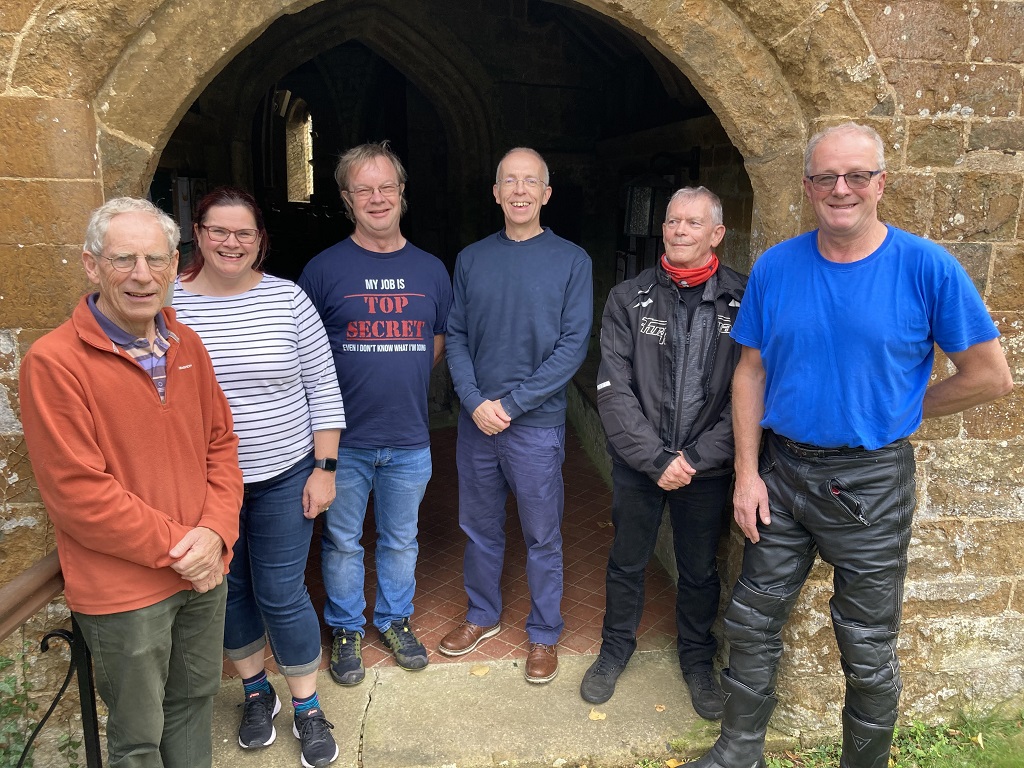ODG 6 Bell Raising and Lowering Competition 2023

Three teams rang at Wigginton (6-1-17) in the inaugural competition for the new Coronation Trophy. Sadly a number of other teams had to pull out of the competition at late notice due to illness and injury. The trophy has been endowed by Robert Newton in memory of his father, grandfather and two uncles, all of whom were Devon ringers for whom raising and lowering was never the starter and pudding but often the main course. The hope – explained Robert – was that this competition could be open and fun with an enjoyable, have-a-go atmosphere.
The competition was won by Hook Norton with 82%. They achieved a speedy rise with a little bunching, but – despite a mercifully brief power cut in the ringing chamber – a smooth lower with a very good transition from double to single clappering.

In a close second place came the Youth Band with 77%. Despite an uneven start to the raise, the team’s lower excelled despite some bunching episodes interspersed with very smooth passages. Their transition was slower with a not-quite-even catch at the end.

In third place came Newbury with 61%. They suffered a partly muddled raise and their lower was the slowest of the three – possibly too slow for comfort – and after the catch one bell chimed a further time.

Thank you to Robert Newton, not only for judging the competition but also for offering general advice on raising and lowering, which he admitted could sometimes be an afterthought even for top peal bands. He reminded us that raising is the first performance to be heard by the congregation on a Sunday and lowering is the last, and neither is always done well. His tips included: get the front bells up quickly to allow space for the back bells to come in and chime; and don’t forget that in many respects it is the tenor that leads up, as the other bells can only go at the speed of the heaviest. The finest judgement is in sensing when to spread out the bells so that the sound evenly both on the approach and at the top.
Robert’s tips for lowering included a warning not to take the first coil too soon out of nervousness, as this can result in jerking a bell downwards too quickly; to keep the ‘untidy’ patch when double clappering becomes single short (‘Get the bells down!’) and to make sure that the back bells hardly swing at all at the end. Two extra recommendations were to read John Harrison’s booklet on raising and lowering (still available at £2.50); and to listen to the ART Raising and Lowering DVD which includes an exceptional lower on 8 at Kingsteignton.
Finally, Robert explained how he had approached marking. Although all rows were marked, overall impression counted for a lot. Marks were divided equally between the raise and the lower with just a few marks allocated to the start and finish of each.
Thank you to the Chipping Norton branch for hosting and especially to Sue Checkley and Geoffrey Stretton, who opened up, helped steward, kept track of the bands and understood how the electricity supply at Wigginton works!
Elizabeth Mullett, Steward
